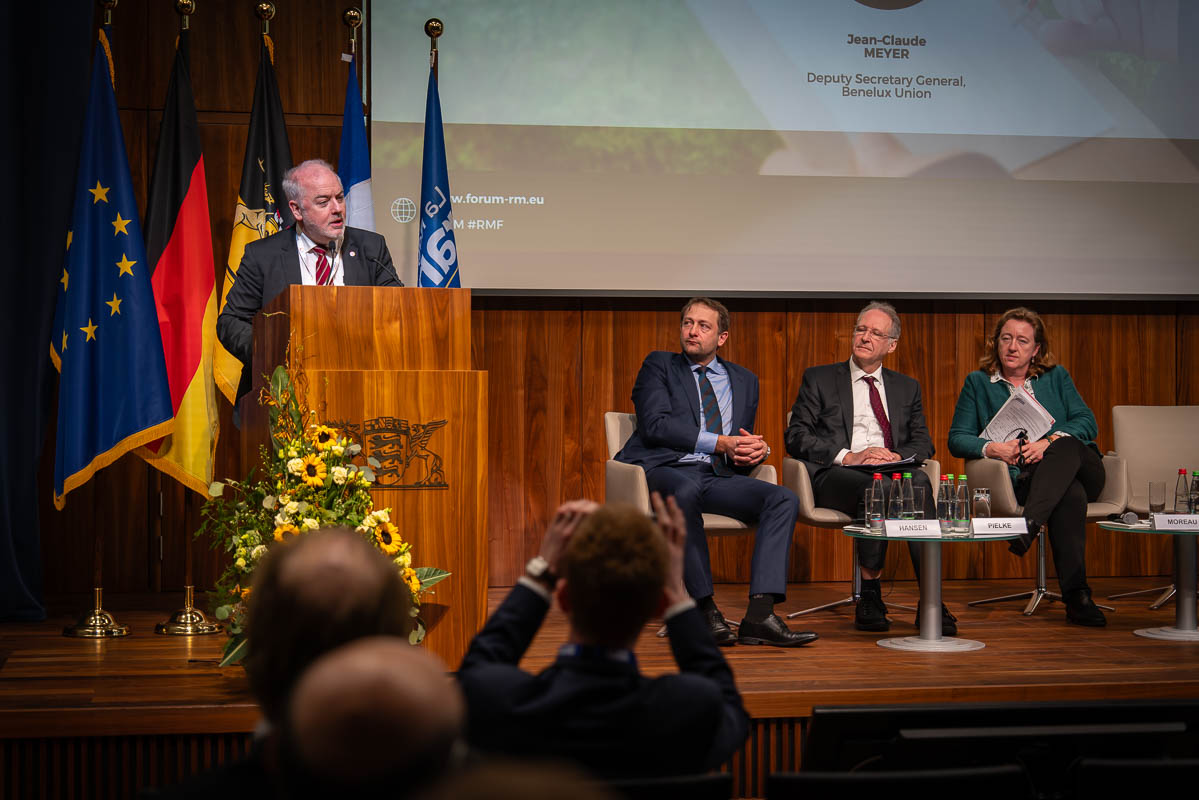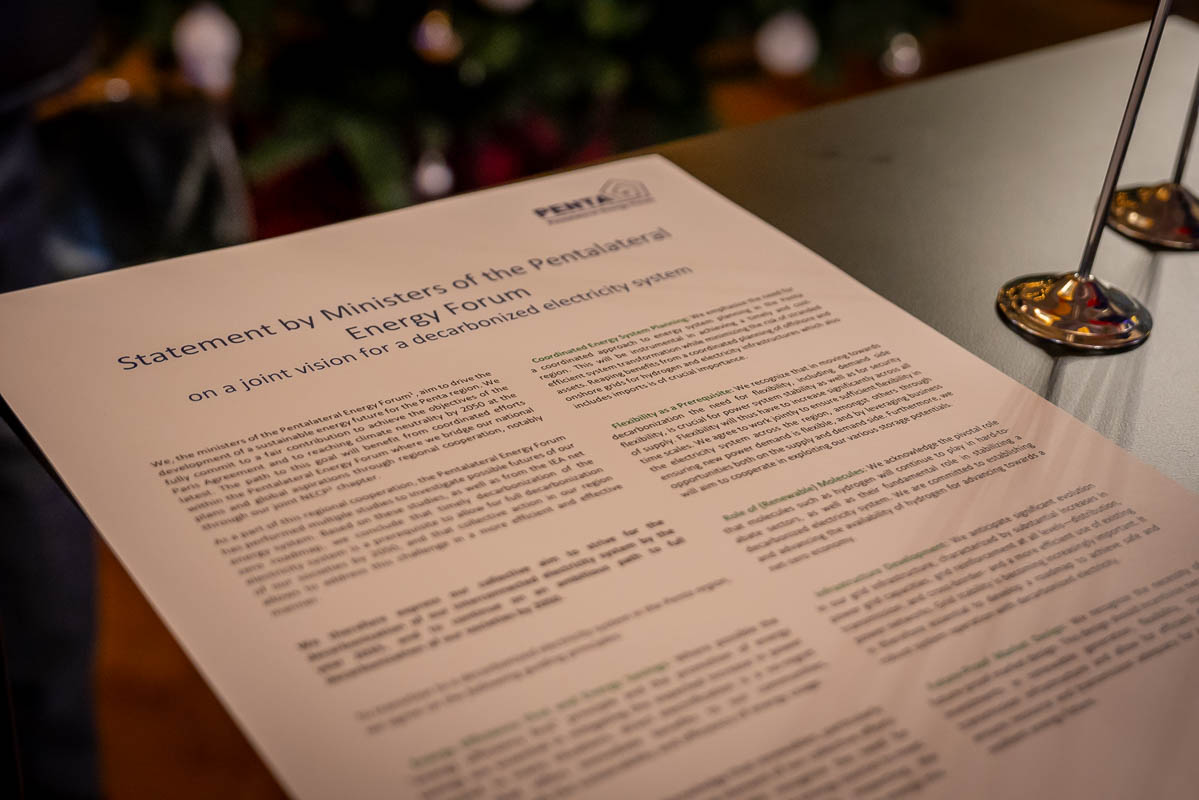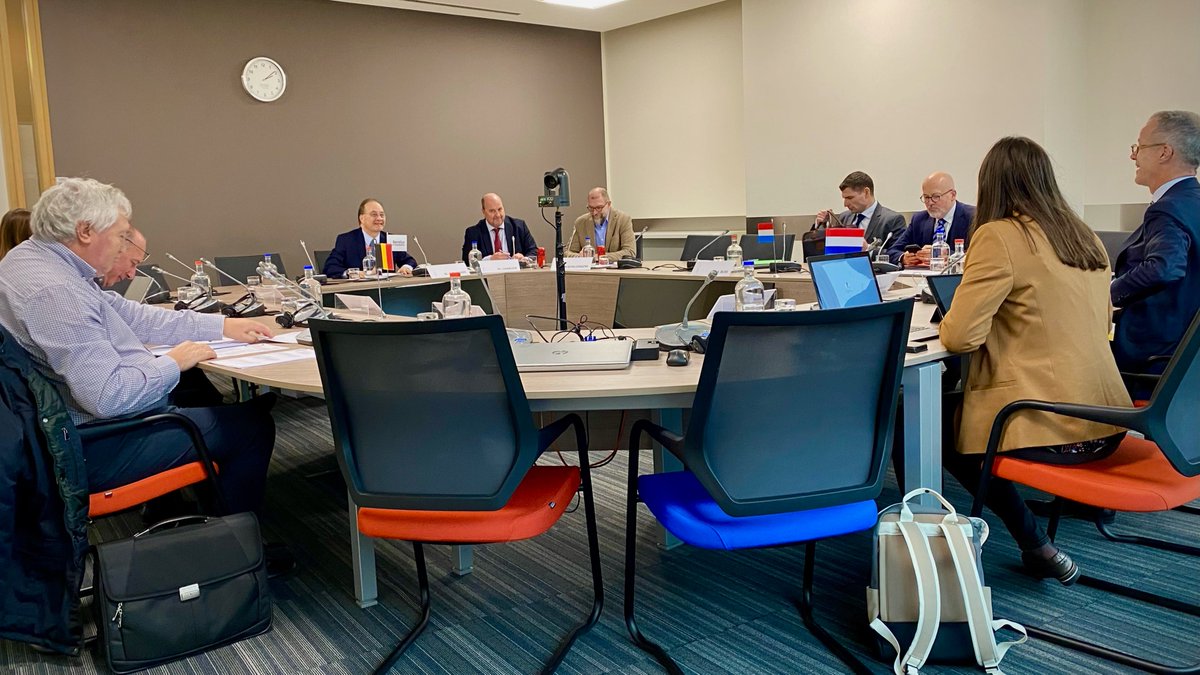Benelux, une coopération transfrontalière pour le bien-être des citoyens et des entreprises
Pour un vivre ensemble
sans contrainte
de frontières
La Belgique, les Pays-Bas et le Luxembourg coopèrent activement pour accroître durablement la prospérité des citoyens et des entreprises au sein du Benelux.
La Belgique exerce depuis le 1er janvier 2024 la présidence de l’Union Benelux.


Etre pionnier dans le
marché intérieur,
la durabilité et la sécurité
Coopérer
sans
frontières

Un acteur clé dans l’histoire de l’intégration européenne
-
1944
Les trois pays signent la convention douanière. Objectif: une communauté tarifaire.
-
1958
Signature du Traité Benelux instaurant l’Union économique Benelux.
-
2008
Nous traitons un large choix de thématiques

Benelux et vous
Vous êtes au cœur
de nos projets pour demain
Le Benelux travaille chaque jour sur des projets ayant un impact positif sur les citoyens et les entreprises
Quel que soit votre profil,
nous sommes là pour vous accompagner

Portails Benelux
A chaque domaine spécifique, sa plateforme dédiée
Travail, énergie, commerce, climat… quel que soit votre centre d’interêt, vous pouvez compter sur Benelux pour vous accompagner.
Consultez nos portails, et retrouvez toutes les informations que vous cherchez.
-

Point de départ travail frontalier
https://startpuntgrensarbeid.benelux.int/fr/Vous trouverez sur ce portail les informations essentielles relatives au travail frontalier.
-

Réseau Benelux d’Expertise Énergétique
https://benex.benelux.int/Le réseau Benelux d’expertise énergétique montre que notre région dispose de connaissances de pointe et travaille intensivement afin d’atteindre la société climatiquement neutre que nous voulons être en 2050.
-

Point d’information Benelux/Rhénanie du Nord-Westphalie sur le commerce de détail
https://retail.benelux.int/fr/Ce site est destiné aux détaillants qui souhaitent faire du commerce transfrontalier au sein du Benelux et de la Rhénanie-du-Nord-Westphalie ou qui souhaitent s’y établir physiquement.
-

Plateforme climatique du Benelux
https://climate.benelux.int/Réunir tous les acteurs concernés par le climat dans la région du Benelux pour renforcer la transition verte.
-

Benelux IDRO
https://benelux-idro.eu/frLa Benelux ID Registration Organization (IDRO) attribue les 5 premiers caractères de codes d’identification pour l’e-mobilité pour le compte de la Belgique, des Pays-Bas et du Luxembourg.
Nos news
Suivez-nous dans l’avancée de nos projets
Nos dernières actualités
Nos derniers tweets
-
Voir sur X (Twitter)
Le Forum Rhin-Meuse réunit des acteurs de 🇩🇪 🇫🇷🇨🇭et du #Benelux pour accélérer la transition vers une économie efficace et compétitive en matière de ressources. Le Benelux est ravi de contribuer à la réalisation d’une 🇪🇺 neutre en carbone d’ici 2050. ℹ️ benelux.int/fr/post/le-benel…




-
Voir sur X (Twitter)
Lors de l’ouverture officielle de la présidence belge #Benelux, SG #FransWeekers a présenté le plan annuel Benelux 2024. Nous sommes impatients de vivre une année riche en projets inspirants et en étroite collaboration avec nos partenaires. #BNL2024BE ℹ️ benelux.int/fr/post/touche-f…

-
Voir sur X (Twitter)
“Penser vert! devrait être le réflexe de tous si l’on veut réussir la transition vers une société durable”. C’est ce qu’a déclaré SGA #Benelux @JeanClaudeMeye3 lors de la journée d’étude sur l’intégration du développement durable dans l’enseignement au sein du Benelux.




-
Voir sur X (Twitter)
Lors de la signature de l’accord de réadmission entre le #Benelux et la #Mongolie, une dispense de visa pour les titulaires de passeports diplomatiques a également été convenue. Une amélioration pour les bonnes relations entre ces pays. ℹ️ benelux.int/fr/post/le-benel…

-
Voir sur X (Twitter)
Sous Présidence 🇧🇪 du #Benelux, la secrétaire d’Etat @Nicole_demoor, l’ambassadeur néerlandais @PJKleiweg et le directeur luxembourgeois @JCKugener ont signé un accord de réadmission avec l’ambassadeur de la Mongolie @boldlu. ℹ️ benelux.int/fr/post/le-benel…

-
Voir sur X (Twitter)
Le #Benelux joue son rôle de précurseur en Europe dans la transition énergétique. Avec le Forum Pentalatéral de l’énergie 🇧🇪🇳🇱🇱🇺🇫🇷🇩🇪🇦🇹🇨🇭 nous renforçons notre coopération en adoptant la déclaration pour un système électrique décarboné pour 2035. ℹ️ benelux.int/fr/post/un-group…




-
Voir sur X (Twitter)
SGA #Benelux @TilemansMichel ouvre la réunion des DG Asile & Migration en soulignant les résultats sous présidence 🇳🇱 2023, les opportunités sous la présidence 🇧🇪 Benelux/UE en 2024, la valeur ajoutée de la coopération Benelux et la nécessité d’une interaction optimale avec l’UE.

-
Voir sur X (Twitter)
Lors de la journée #Benelux sur l’eau à Maastricht fin novembre, chercheurs et décideurs politiques se sont réunis pour répondre aux défis des inondations et sécheresses prolongées. Merci à tous d’avoir contribué à la réussite de cet événement! youtu.be/fHK_BhrGUu8
-
Voir sur X (Twitter)
Le SGA #Benelux @JeanClaudeMeye3 souhaite la bienvenue à la réunion plénière de la Commission Internationale de la Meuse dans la maison du Benelux, et souligne que l’eau est un bien commun, à gérer en commun. Le #Benelux s’y emploie également, d’où l’intérêt d’une #coopération.


-
Voir sur X (Twitter)
Les organisations entrepreneuriales 🇧🇪🇳🇱🇱🇺 s’engagent en collaboration avec l’Union Benelux à résoudre les principales barrières commerciales dans le #Benelux pour les PME et le secteur des entreprises en général. ℹ️ tinyurl.com/2k3ksztk

Suivez nous sur :
Envie de rester informé ?
Inscrivez-vous à notre newsletter aujourd’hui. Suivez nos projets pour demain.
- Contenu personnalisé
- 100% gratuit









